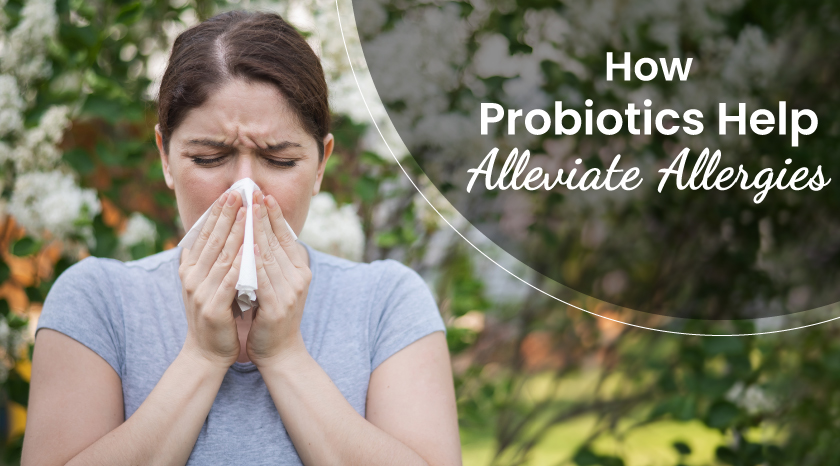In today’s world, allergies have become increasingly prevalent, affecting millions of individuals worldwide and significantly impacting their quality of life. From seasonal allergies to food sensitivities, the quest for effective relief often leads sufferers down a path of trial and error. However, emerging research suggests that probiotics, the beneficial bacteria renowned for their role in gut health, may offer a promising avenue for managing allergic reactions. Let’s explore how probiotics can help alleviate allergies and improve overall well-being.
Understanding Allergies:
Before delving into the role of probiotics, it’s essential to understand what allergies entail. Allergies occur when the immune system overreacts to harmless substances known as allergens, triggering a cascade of inflammatory responses. Common allergens include pollen, pet dander, dust mites, certain foods, and insect stings. Allergic reactions can manifest in various ways, ranging from mild symptoms such as sneezing and itching to more severe manifestations like anaphylaxis.
The Gut-Allergy Connection:
The gut plays a pivotal role in immune regulation, housing a vast array of immune cells and interacting closely with the external environment through the foods we consume. Disruptions in gut microbiota balance, often referred to as dysbiosis, have been linked to the development and exacerbation of allergic conditions. This is where probiotics come into play. By restoring microbial balance and modulating immune responses, probiotics hold the potential to mitigate allergic reactions and promote tolerance to allergens.
Immunomodulatory Effects:
Probiotics exert their beneficial effects on allergies through various mechanisms. Firstly, they bolster the integrity of the intestinal barrier, preventing the leakage of allergens into the bloodstream and reducing systemic inflammation. Secondly, probiotics modulate immune responses, promoting the production of anti-inflammatory cytokines while suppressing the activity of pro-inflammatory mediators. This helps dampen the exaggerated immune reactions characteristic of allergic responses.
Alleviating Atopic Dermatitis:
One area where probiotics have shown particular promise is in the management of atopic dermatitis, a chronic inflammatory skin condition commonly associated with allergies. Clinical trials have demonstrated that certain probiotic strains, when administered orally or topically, can improve the severity and duration of atopic dermatitis flare-ups, providing much-needed relief for sufferers. Probiotics achieve this by restoring skin barrier function, reducing inflammation, and rebalancing microbial diversity on the skin.
Potential for Food Allergy Prevention:
Emerging evidence suggests that early exposure to probiotics during infancy may help reduce the risk of developing food allergies later in life. Maternal consumption of probiotics during pregnancy and breastfeeding, as well as infant supplementation, has been associated with a lower incidence of allergic sensitization and food allergy development in children. While further research is needed to elucidate the optimal timing and strains for allergy prevention, these findings hold promise for future interventions.
In the quest for allergy relief, probiotics offer a natural and potentially effective solution. By nurturing a healthy gut microbiome and modulating immune responses, probiotics hold the key to alleviating allergic symptoms and improving overall quality of life. Whether you’re dealing with seasonal allergies, food sensitivities, or chronic skin conditions, incorporating probiotic-rich foods or supplements into your daily routine may offer significant benefits.
However, it’s important to note that probiotics are not a one-size-fits-all solution, and individual responses may vary. Consultation with a healthcare professional is advised, especially for those with severe allergies or underlying health conditions. With the right approach and informed guidance, harnessing the power of probiotics can pave the way towards a healthier, allergy-free life.




